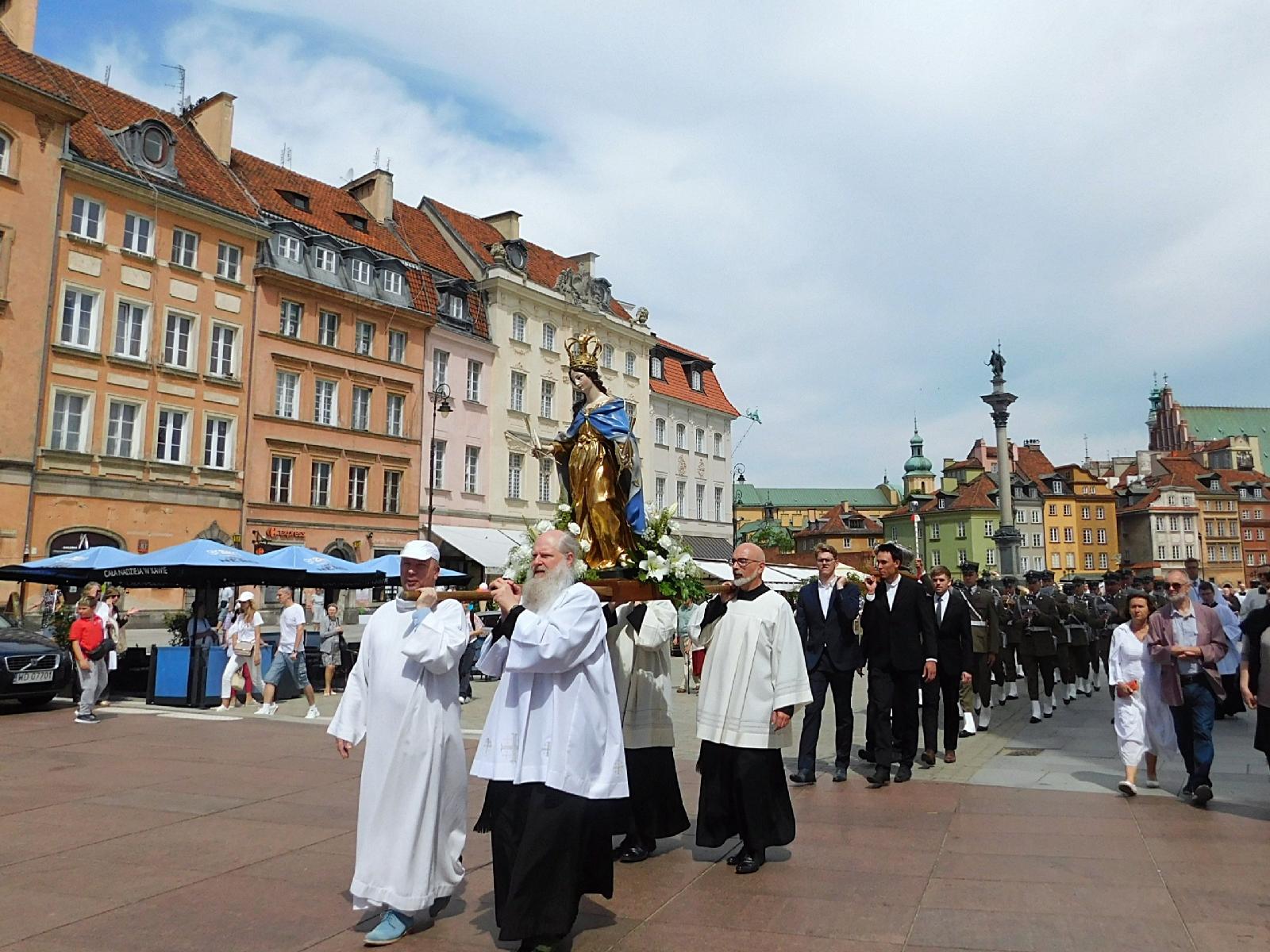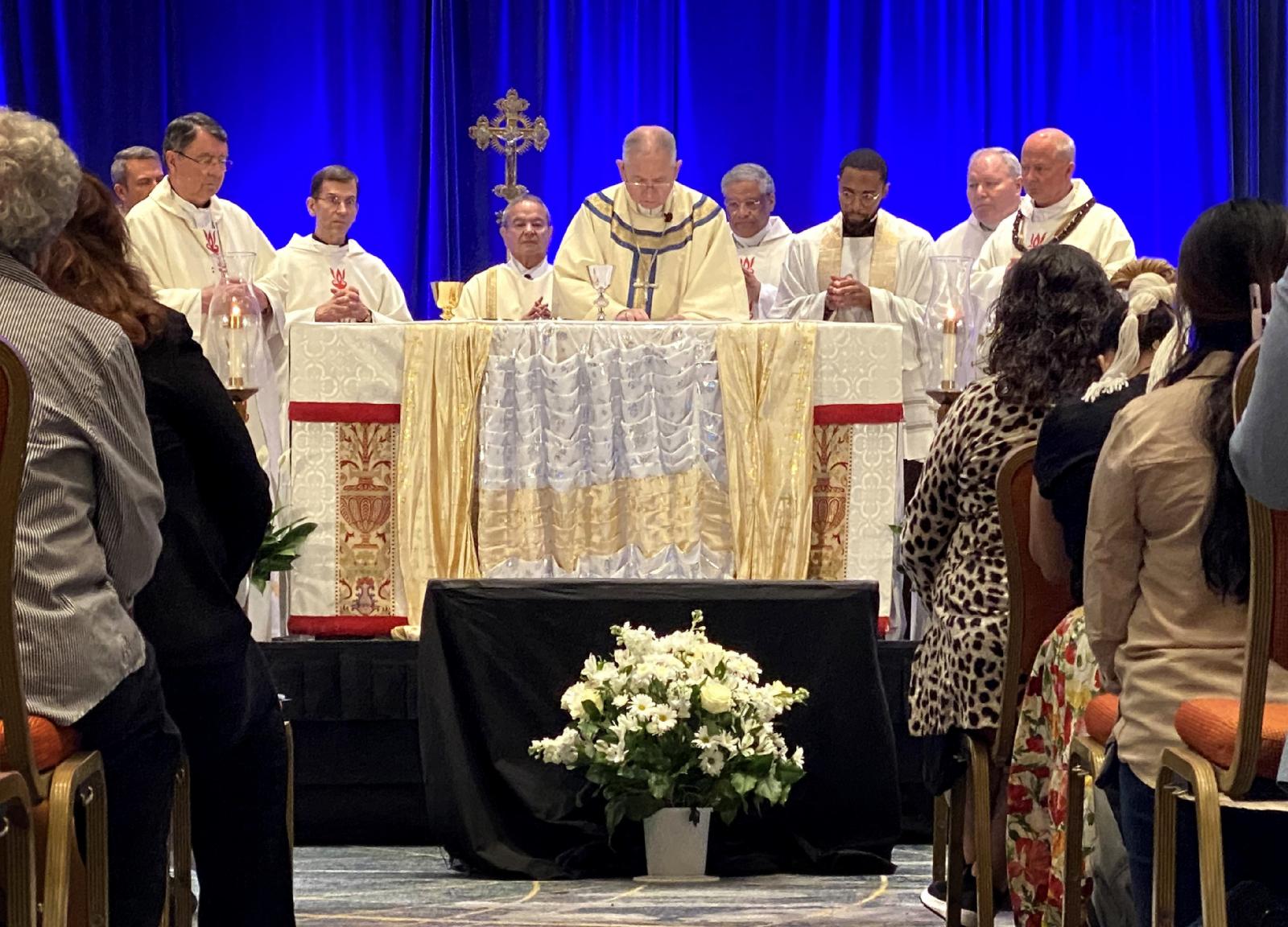In this enigmatic gospel episode, three generous individuals express their desire to follow Jesus. His reply to each of them seems, however, discouraging at best and, at least in the case of the bereaved man, heartless, at worst. Heartless, that is, if taken literally, as some readers of this gospel undoubtedly have.
I heard of a nun many years ago, but within my lifetime, who was forbidden from attending her father’s funeral which was actually taking place in the large parish church adjoining the convent because, as she was reminded by the Mother Superior, she had left everything (and everyone) to follow Christ. Unbelievable, but not unique in the so-called good old bad days.
But sayings of Jesus such as in this gospel are to be read neither literally nor allegorically but rhetorically. Only if read rhetorically do they make their point, a point powerfully aided by Aramaic’s apparent distaste for comparatives, in favour of statements of a more ‘black’ or ‘white’, ‘yes’ or ‘no’ kind. It’s also been suggested that Jesus often deliberately adopted the shock tactics of the Cynics, by this time revived in the Roman world of the first century, who openly (and sometimes outrageously) flouted conventional respectability. And the sayings in this gospel are certainly extreme by conventional standards, both then and now.
Saying that someone should “Leave the dead to bury the dead” would have sounded scandalous and offensive to a pious Jew: the duty of burying the dead, especially one’s father, was more sacred than any other, a social and religious obligation admitting of no exception.
Again, the discourtesy of failing to say good-bye to your family would not only offend against filial instinct but would be in flat contradiction of the Decalogue’s injunction to honour your parents. (Though Jesus softens the saying by introducing a hint of humour: you can’t hope to plough in a straight line if you keep turning round.)
But these sayings are intended not just to shock, but to provoke in his hearers a re-consideration of our own, personal, priorities and commitments. In starkly stating demands as extreme as these, he’s not emphasising rival commitments, but pointing to a degree of commitment that’s foundational for all our commitments. The commitment that informs all our commitments, in other words, is the all-embracing commitment to follow Christ’s way in all that we do.
Again, by means of these rhetorical flourishes, Jesus doesn’t merely relativise certain instinctive and unquestioned obligations: he calls into question our very understanding of the meaning and place of obligation. So, the general question is not “What personal obligations come before following Christ?” That question simply doesn’t make sense, once ‘following Christ’ is understood to be the foundation of all that we do and are. Following Christ is not one obligation or consideration among others: it’s not even an obligation, as such, but an invitation, from which, of course, many obligations do undoubtedly flow. Another question posed by the disciples evokes a similar rhetorical answer from Jesus. In answer to “How many times must I forgive: seven?” Jesus’ reply, “Seventy times seven”, is tantamount to saying “Always”, implying, again, that the question doesn’t make sense.
Yet again, to the question, “How much of what I own should I give to the poor?” the answer “everything”, serves only to show that the question itself already misses the point. The force of these replies is intensified precisely by their unconditional and volatile generality: any attempt to explain or mark out exceptions would weaken their rhetorical power. More importantly, any qualification or specification would transform them into rules and obligations.
But, unlike rules and obligations, these sayings are open-ended and limitless invitations to a way of living (and a way of dying) that simply can’t be reduced to rules, duties, prescriptions, and obligations. St Paul in the second reading is explicit: “If you are led by the Spirit, no law can touch you”: the freedom into which the Spirit leads us is an entirely new language, the language of “love, joy, peace, patience, kindness, gentleness and self-control”.
But this freedom is not the absence of commitment; it is not the freedom of indifference. It is the freedom of the children of God, “bought at great price”, freedom from “the yoke of slavery” but freedom for the good. It is the capacity to be attracted and moved by what is good, noble, admirable and excellent; by everything that genuinely fulfils our nature, enabling us to flourish precisely through our genuinely free choices that shape and define us. It is freedom to serve one another “in works of love”. Our free choices last; they live on in our characters. And, contrary to the more modern, negative view of freedom, genuine freedom involves rather than eschews selfdiscipline.
We learn our scales precisely in order to be free to play the musical instrument creatively, as a genuine expression of our own self. We learn the rules of grammar and master a language’s vocabulary precisely in order to be free to express and communicate not just information but our own selves. In sum, the way of Jesus is the key to true freedom, freedom that enables us to be ourselves, as opposed to being slaves to fantasy-driven, dead-ended egotism. True freedom is freedom to be authentically human; and to be authentically human is to be in Christ, as Christ is in us. “Lord, so act in me, that all I do is done also by Thee.”



 Loading ...
Loading ...
What do you think?
You can post as a subscriber user ...
User comments (0)